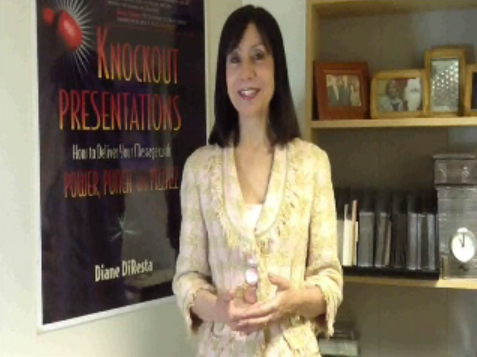 September is back to school month. Students first learn the three R's- "Reading, (w)Riting, and 'Rithmetic." But for public speakers and presenters there are actually six R's.
Last weekend I attended a workshop on videomarketing - Share the Sizzle. One of the speakers, Mary Agnes Antonopoulos, talked about the six R's for succeeding in social media. I realized that those same six characteristics apply to successful public speaking and presentations. The six R's are Relevance, Recognition, Rapport, Relationships, ROI, and Responsibility.
September is back to school month. Students first learn the three R's- "Reading, (w)Riting, and 'Rithmetic." But for public speakers and presenters there are actually six R's.
Last weekend I attended a workshop on videomarketing - Share the Sizzle. One of the speakers, Mary Agnes Antonopoulos, talked about the six R's for succeeding in social media. I realized that those same six characteristics apply to successful public speaking and presentations. The six R's are Relevance, Recognition, Rapport, Relationships, ROI, and Responsibility.
Relevance - One reason presentations fail is lack of relevance. I see this all the time in my coaching practice. Too many presenters are speaker-centered and not listener-centered. They talk about what's important to them, instead of addressing the self-interest of the audience. Public speakers may have a relevant topic but if they don't present examples, case studies, or stories that are meaningful to the listeners, the ideas can die a quick death. For example: when pitching an idea to senior management, don't spend time on details. That's irrelevant to them even though details are very relevant to end users. Speak to the interests of the audience for maximum relevance.
Recognition - People do business with people they know, like, and trust. The first step is visibility. Do people know who you are? If not, it will take longer to gain their trust and to sell your ideas. I knew an executive whose department contributed significantly to the company's revenues; however, most people weren't aware of this executive's accomplishments. As a result, the executive did not advance as quickly as expected. The better the audience knows you, the more easily they'll accept your information and ideas. That's why companies hire celebrities to sell their product. Seize opportunities to speak and promote yourself to increase your recognition.
Rapport - Rapport has to do do with likability. How likable are you as a presenter? Do you exude warmth? Or are you a talking head? I've noticed some commonalities between speakers who fail to achieve audience rapport.
First, they don't smile. If you're too serious, you may come across as distant and even intimidating. The public speaking myth is that "serious" means "professional." Actually, the reverse is true. The top leaders and public speakers smile and use humor. When you're relaxed, you appear more confident.
The second mistake I've observed is rushing. When speakers get right down to business and talk AT the audience instead of with them, the audience retreats emotionally. That's why many speakers begin with opening remarks and humor. They share something personal about themselves or the audience. When I was in Tanzania, I memorized my opening remarks. I said, "Good morning. I'm happy to be here!" in Kiswahili. To my surprise, they audience broke out in applause. I was literally speaking their language!
The third reason for failed rapport is that presenters don't pace the audience. They hold on rigidly to their outline or PowerPoint. Successful public speakers are able to let go of the script and move where the audience wants to go. Don't let rigidity be one of your six R's.
Relationships - If rapport is about likability, then relationships are about trust. Once the audience likes you, it means they're engaged at the moment and willing to listen. You may be entertaining but until the audience trusts you, they won't take action.
Let's say you're giving a marketing talk. You have excellent platform skills. You're entertaining. But at the end of the presentation, nobody buys your product. Assuming you're in front of the right people, audience skepticism may mean they don't know you well enough.
The top speakers build a relationship with the audience and that happens before they ever meet. It starts with an email which may be followed up with a postcard or phone call. These public speakers provide third party testimonials and leverage mutual relationships.
In company meetings, you'll have better success in gaining support if you meet people for lunch, stop by their desks to say hello, and get to know them. Chase Manhattan Bank had a slogan that said it best: "The right relationship is everything."
ROI - We often think of ROI as Return on Investment. For presenters, it also means Return on Impact. If you're selling a product or pitching for funding, success can be measured in dollars. Most of the time, presenters are communicating information or selling an idea internally. These presenters won't see increased dollars in their pockets if their idea is accepted. But they will experience return on impact because they'll increase their influence within the organization.
How do you know if you've made impact with an informational presentation? The listeners will be engaged. They'll ask questions. You'll see nodding heads and direct eye contact. Positive feedback will filter through the company grapevine.
Responsibility - Public speakers and presenters have a responsibility and some take it lightly. You have a responsibility first and foremost to deliver what you promise. When a store advertises a sale and then pulls a Bait and Switch act, you automatically feel frustrated, angry and distrustful. Many consumers will walk out of the store.
I've seen speakers do the same thing. I once heard a celebrity speaker announce, "I don't think I'll talk about... [the subject that was published in the schedule]. We can cover that in the second session. What I want to talk about is..." The problem with that decision was that I didn't sign up for the second session and that celebrity speaker lost credibility. I'll read his books, but I won't attend a live presentation again.
Presenters have an obligation to their listeners. There's a contract between a public speaker and an audience. Even if you're giving a meeting update, be sure to honor the time commitment and give them the information in a way they can understand. When you speak to a large audience, be sure to deliver the presentation they signed up to hear.
 How much is your presentation worth? If you're not speaking with power and confidence, you're losing money. There is an ROI to your presentation.
A few months ago, I met with a coaching prospect and presented myself and my services. He recently confided that he had interviewed a number of coaches before selecting me. He said that I was the most professional, I had a game plan, and I told him the truth about his coaching needs. Some coaches were dressed too casually. Some said they would do whatever he wanted when he asked them about their approach. He didn't feel confident about their services. I closed the sale with one meeting - with one presentation.
How much is your presentation worth? If you're not speaking with power and confidence, you're losing money. There is an ROI to your presentation.
A few months ago, I met with a coaching prospect and presented myself and my services. He recently confided that he had interviewed a number of coaches before selecting me. He said that I was the most professional, I had a game plan, and I told him the truth about his coaching needs. Some coaches were dressed too casually. Some said they would do whatever he wanted when he asked them about their approach. He didn't feel confident about their services. I closed the sale with one meeting - with one presentation.

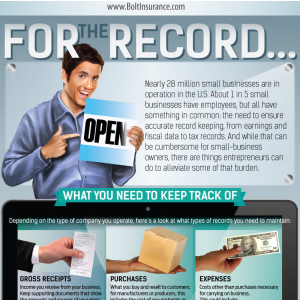

 September is back to school month. Students first learn the three R's- "Reading, (w)Riting, and 'Rithmetic." But for public speakers and presenters there are actually six R's.
Last weekend I attended a workshop on videomarketing -
September is back to school month. Students first learn the three R's- "Reading, (w)Riting, and 'Rithmetic." But for public speakers and presenters there are actually six R's.
Last weekend I attended a workshop on videomarketing - 
 Born in the U.S.A. I was born in the U.S.A.
Born in the U.S.A. I was born in the U.S.A.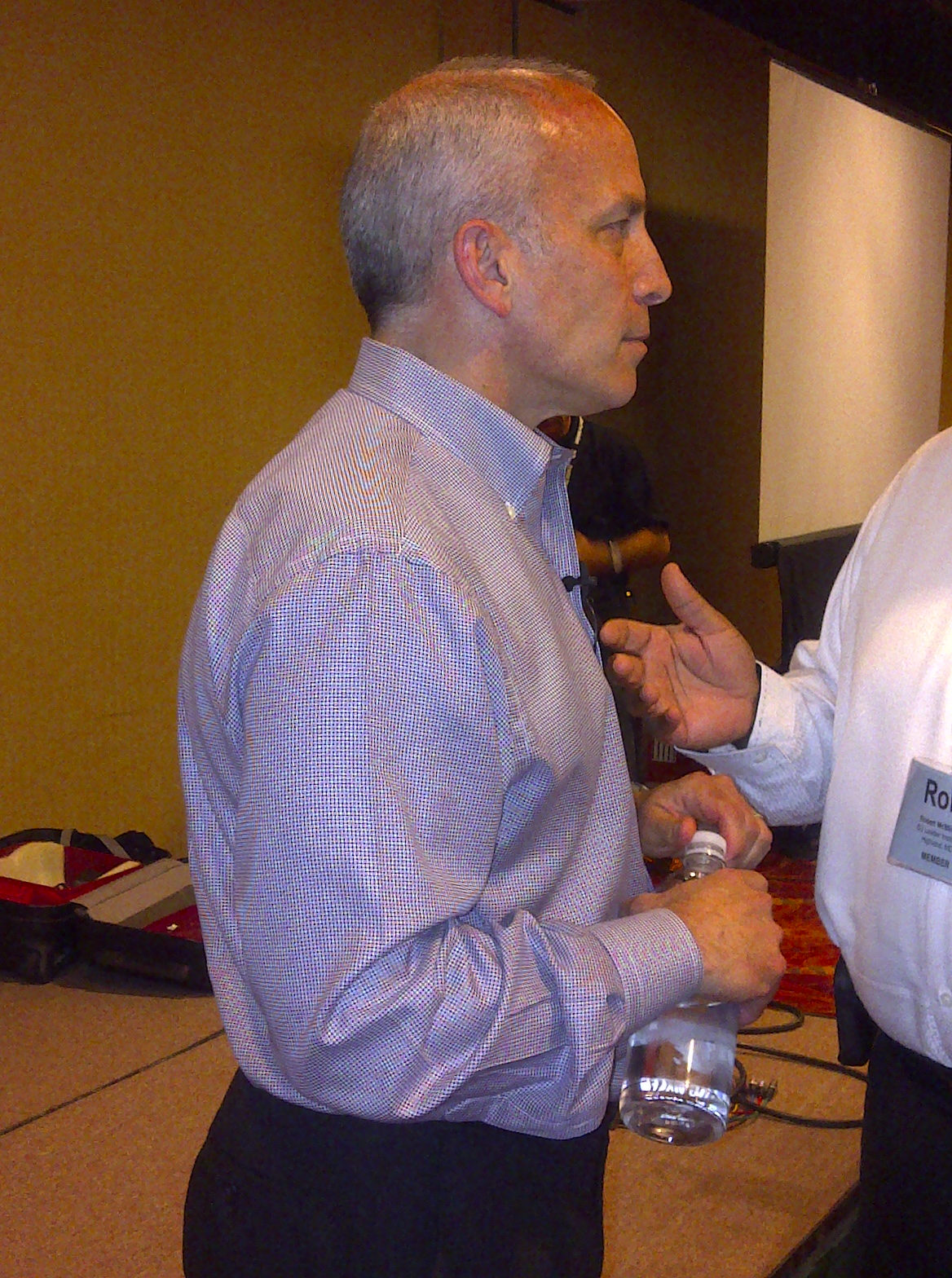 The dream of most
The dream of most 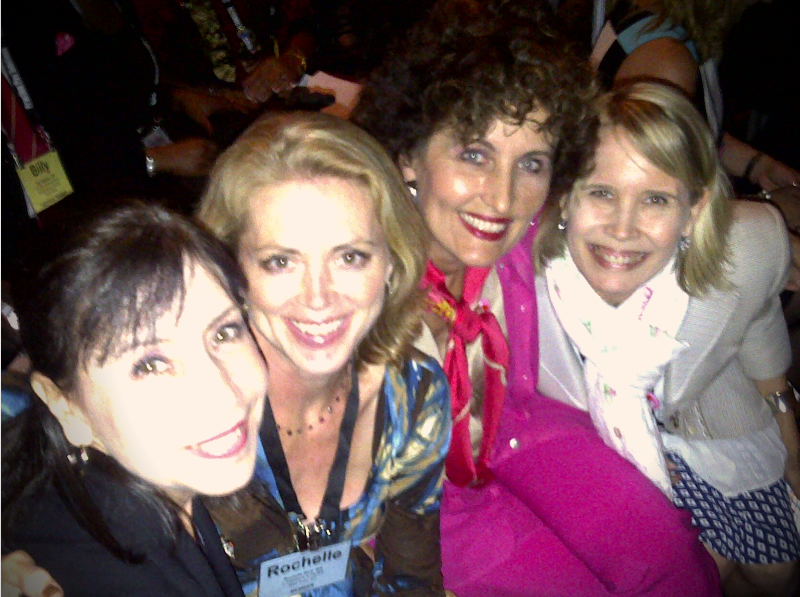 Does your audience still hear your voice after your presentation?
This was one of the provocative questions asked at the 2013 National Speakers Association convention. The event was held in Philadelphia, the City of Brotherly Love. And I was loving this event! I came back excited and with new ideas to share with you.
Does your audience still hear your voice after your presentation?
This was one of the provocative questions asked at the 2013 National Speakers Association convention. The event was held in Philadelphia, the City of Brotherly Love. And I was loving this event! I came back excited and with new ideas to share with you.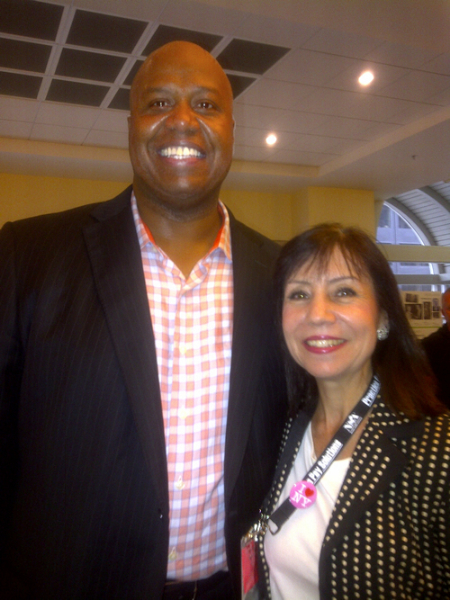
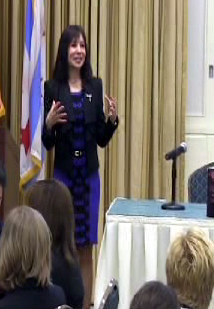 August 7th is Professional Speaking Day. Do you want to be a professional speaker?
I've been a
August 7th is Professional Speaking Day. Do you want to be a professional speaker?
I've been a Political candidates spend millions of dollars on advisers,
Political candidates spend millions of dollars on advisers,  The most difficult part of an advertiser's job isn't coming up with game-changing, original ideas. That's what they do day in and day out. The most difficult part is selling those ideas to clients—or, the pitch.
The most difficult part of an advertiser's job isn't coming up with game-changing, original ideas. That's what they do day in and day out. The most difficult part is selling those ideas to clients—or, the pitch. I recently came across this cartoon and started laughing out loud. It really resonated with me. I relate to that guy who's defaulting to something he knows and something he can understand. It's that old adage:
I recently came across this cartoon and started laughing out loud. It really resonated with me. I relate to that guy who's defaulting to something he knows and something he can understand. It's that old adage: 



